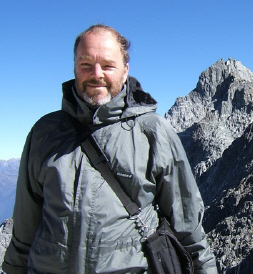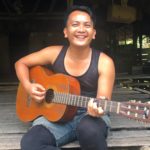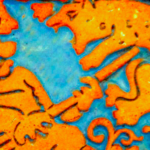Ben Box was born in Bristol, England. He attended university in Southampton (BA in Spanish) and London (PhD in the Arthurian Legends in Spain and Portugal). His first job was in Grant and Cutler, a modern languages bookshop in London, after which he worked as a publisher’s representative in Southern England. In 1980 he started to work as a freelance writer, specializing in all things Iberian and Latin American. Among his first assignments was sub-editing work on Footprints’ legendary South American Handbook — and this book soon dominated all other projects. He has contributed to newspapers, journals and learned tomes — usually on the subject of travel, but also on South American literature. Since 1989 he has been involved with many Footprints projects, all to do with Latin America and the Caribbean. His outside interests and activities include village cricket and gardening.
How did you get started traveling?
With my parents and brother we used to take holidays in the west of England and Brittany. In my late teens I went hitchhiking and bumming around Scotland and Spain with a couple of friends. But I can’t say that any of that gave me an urge to travel. I got a much stronger desire to see other places from a fascination with Oriental Art, but this has never translated into a journey in that direction. I’ve been no further east than Greece, so I am still awaiting the commission. Westward is the only way I’ve been. My first exposure to Latin America was Mexico with my partner, Sarah Cameron. The Maya temples of Chichen Itzá really sparked something in me which, I am pleased to say, does not fade. Setting foot in South America is always a thrill, no matter how familiar I am now with the sights, sounds and smells.
How did you get started writing?
Youthful scribblings led me to join a poetry group at University, which was fun. Writing and researching my PhD thesis taught me discipline, which has stood me in good stead for freelancing.
What do you consider your first “break” as a writer?
Taking advantage of many kind people’s excessive workload and doing what they did not have time to do. That, and meeting John Brooks, editor of the South American Handbook.
As a traveler and fact/story gatherer, what is your biggest challenge on the road?
Avoiding the potholes in the street. Finding places to eat alone.
As a fact gatherer, it’s very easy to concentrate only on the facts and not look beyond them. The trick is to balance “micro” details which are of use to travellers (like which banks accept which credit cards), with the big picture, which conveys the atmosphere of the country in question. So it’s a case of writing the facts down, listening to other travellers and the experts in the field, following as many leads as possible and then distilling all the information into a practical and enjoyable book. The other challenge is not getting discouraged if I can’t do everything that I set out to do on a journey. The job is very time restricted so I have learnt to be flexible, on the road at least. That all seems to evaporate when confronted with deadlines, though.
What is your biggest challenge in the research and writing process?
a) Keeping up with all the changes, not just in things like lodging and bus prices, but in information itself, eg via the web. b) Taking time off
What is your biggest challenge from a business standpoint?
Money is at the root of it all. Ample funds create time, allow more personnel to work on a project and permit better promotion. With regard to editors, I like to work those who ask questions. Those who change text without consulting I don’t appreciate so much.
Have you ever done other work to make ends meet?
Anything other than writing that I have done has been so small as to make no difference. I’ve been really lucky in that I have never been out of work as a freelancer, but I’ve never been rich, either.
What travel authors or books might you recommend and/or have influenced you?
I have probably not read as many travel writers as I ought, perhaps because it’s too much of a busman’s holiday, but if I were to single out a writer whose books I have consistently enjoyed it would be Colin Thubron. I’d like to recommend two literary travel books: Footsteps, by Richard Holmes, and Reading Chekhov, by Janet Malcolm.
Fiction is what I read most: storytellers, from the concise (Katherine Mansfield, Anton Chekhov) to the expansive (Charles Dickens, Gabriel García Márquez – who can write concisely equally well, Miguel Angel Asturias), Russell Hoban, M John Harrison. But so many more.
Wandering poets: Antonio Machado, the Zen monks, Joni Mitchell.
In professional field, Alan Deyermond and John Brooks were undoubtedly the most influential mentors.
On the web: Ron Mader’s Planeta; Mark Woods’ Wood S Lot.
What advice and/or warnings would you give to someone who is considering going into travel writing?
Don’t think you can become a travel writer just because you enjoy traveling.
What is the biggest reward of life as a travel writer?
The friends I have made in South America, on the road, at and through Footprint. And being lucky enough to have a job that allows me to go to South America. I realize that I am never more than scratching the surface, but I am glad of the chance to be able to keep learning.





